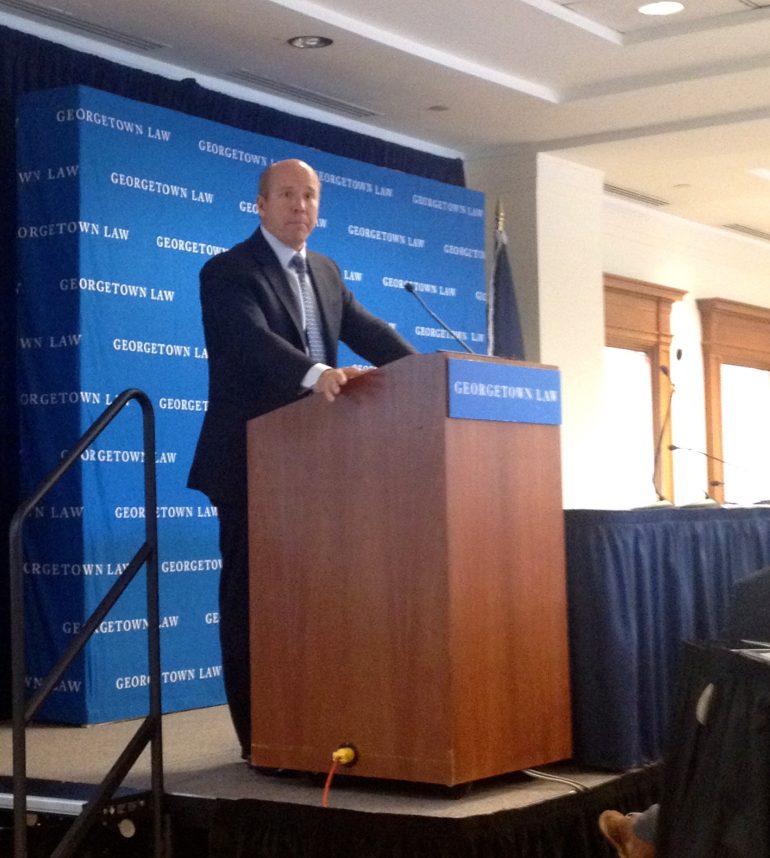WASHINGTON–Infrastructure can be revitalized and jobs can be created when a bipartisan government works with private companies, Rep. John Delaney said Thursday at a Public-Private Partnership Symposium.
Delaney, D-Potomac, highlighted his signature bipartisan infrastructure bill when he spoke at his alma mater, Georgetown University Law Center, as an example of a public-private partnership. The bill, which Delaney introduced in late January, aims to fund infrastructure through a one-time tax on corporate overseas holdings.
“What we created was a public-private partnership with this bill,” Delaney said. “Corporate America is doing terrifically. They have about $5 trillion on the balance sheets…Almost half that cash is overseas, though.”
Delaney said his bill would either force companies with overseas holdings to invest in infrastructure like bridges and roads or to bring their money back to the United States.
He added that there are micro-incentives for public-private partnerships in the bill that provide funding to help states begin to create public-private partnerships with local businesses.
“Infrastructure is a straightforward solution,” Delaney said. “It’s inherently an appropriate role for government. Infrastructure can be central to solving a lot of problems.”
Delaney said infrastructure not only helps people travel and go about their daily lives better, but that it can also help businesses compete.
“Having world class infrastructure is really important for competitiveness of this nation,” Delaney said. “It’s our second best investment, behind research, as it has a really good multiplier.”
Delaney said his plan would also create jobs. He explained that mid-level job creation is low despite the growing job market. The infrastructure bill he introduced aims to remedy that.
Delaney’s infrastructure plan is just one example of his attempts to unite Congress through public-private partnerships across party lines. Delaney said he and Rep. Todd Young, R-Indiana, plan to reintroduce another bipartisan bill that focuses on public-private partnerships in a few weeks.
The bill would allow state and local governments to contract out public service work to nonprofits. The nonprofits would work for a set amount of time before being reimbursed with the money the government saved by contracting out the work. The nonprofits would be reimbursed, however, only if they met government quality standards.
“I think public-private partnerships are really important,” Delaney said. “They have to be held to a high analytical standard, though. In other words, they should benefit citizens.”
Delaney added that he hopes to use public-private partnerships to promote bipartisan measures like these.
“What’s important is this notion of working together to this common goal,” Delaney said. “We’re too divided in this nation…We need to embrace the notion that both sides have really good ideas.”

